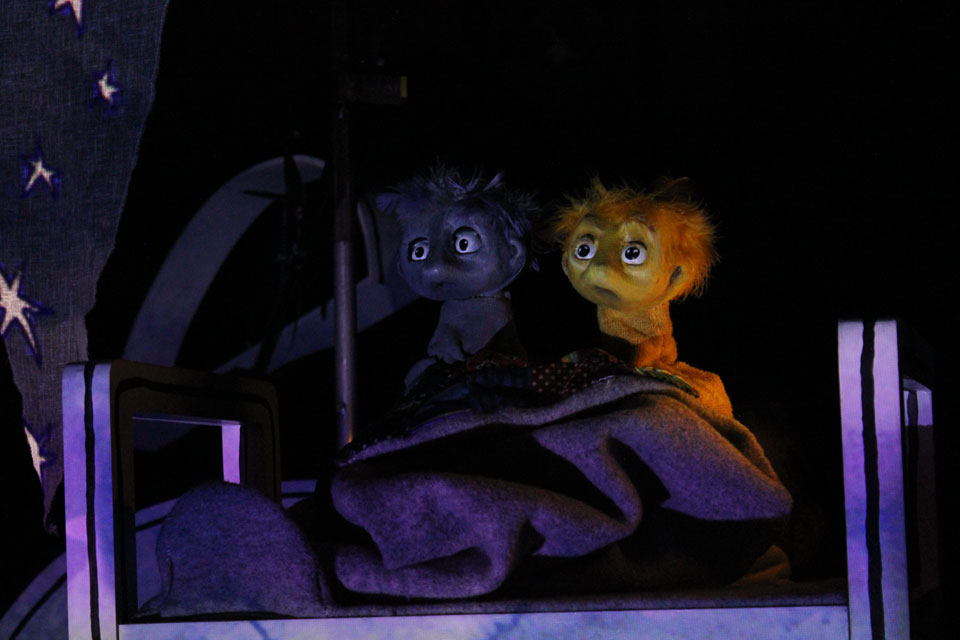The phantasmagorical play Don’t Wait for Me was performed at the Novi Sad Theatre Festival by French actress of Russian origin, Vera Rozanova. Accompanied by a two-person technical team from her small troupe La neige sur les cils (Snow on the Eyelashes), she drew us into a dream where houses leave their owners — just as owners often leave them, whether by choice or necessity. After the performance, Vera Rozanova spoke first about how the idea for this story came to be. The performance, astonishingly executed with just two hands, unfolded across three languages, each one carefully chosen to speak directly to the Novi Sad audience.
How did this performance come into being? How did the idea originate?
It all started in a children’s workshop, where we reconstructed stories about people’s and animals’ lives based on photographs of their homes. I wrote the text inspired by those observations, and when someone said, “My house left without me,” it struck me as a brilliant motif for creating a play.
Has a house ever left you, strayed from you, like the one in your play?
Oh, yes. I was born in Russia, in Saint Petersburg, and my life took a dramatic turn when I went to school in France. Initially, it was meant to be just a few years of schooling, but over time it became clear that France would be my home. I realized this when I began to stutter in my mother tongue and found myself thinking and writing in French instead.
How should we talk about theatre with children, and how do we create theatre for today’s young audiences? You've shown us one way to reach them.
It’s difficult — but not impossible. The key is to be truthful and remain so. I think that when we create for children, we are always searching for the adult within them, and when we search for adults, we end up discovering the child. That’s a strange but beautiful thread where our life stories are born.
What kind of audience are children in France, where you perform most often?
It always depends on the performance. Often — perhaps most often — they lack the patience for long plays. In France, children’s theatre typically targets ages four and up. That’s the age when they begin to understand both the language and the images we present to them. I’ve noticed they behave differently when accompanied by parents compared to when they're with teachers or educators. They’re calmer and more attentive in the latter case. But then suddenly, they might burst out in a moment — and just as suddenly, quiet down again and continue watching with focus.
Are there currently any themes in France that are particularly prominent, or a genre of children’s or youth theatre that’s especially popular?
I’m not entirely sure about genres, but when it comes to themes, migration is a major one. France was once a colonial country and is now home to many different cultures that shape its current identity.
Another significant theme is discrimination, followed by homosexuality, respect for others’ languages and expressions, and the broader question of how to find common ground in our shared — and important — history.




